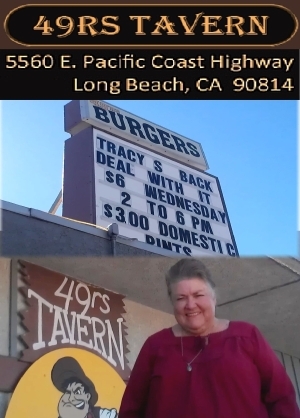Baseline Relocation Assistance Components
Component 1. Trigger for Relocation Assistance:
Relocation assistance is triggered upon A or B below:
A. Notice of rent increase of 10 percent or more in any 12-month period.
B. Notice to vacate issued to a tenant who has not:
- 1. Failed to pay rent
- 2. Violated terms of the lease or rental agreement
- 3. Materially damaged property
- 4. Interfered with other tenants
- 5. Committed violence or assault
- 6. Used premises for unlawful activity
- 7. Engaged in unlawful use or dealing of drugs
- 8. Conducted animal fighting
- 9. Engaged in unlawful use of weapons or ammunition
Component 2. Conditions of Relocation Assistance:
- Rent must be paid during noticing period or relocation benefits are not required.
- Households removed under provisions 1 through 9, or evicted, are not eligible for
relocation benefits.
- Tenants vacating voluntarily do not receive relocation benefits.
- Tenants receiving a rent increase of 1 O percent or more must notify property owner
within 7 days of their intent to stay or leave with relocation benefits.
- Rental security deposits must be returned per California law.
- Tenants must be given reasonable accommodation to cure causes for termination per
California law.
Other requirements/enforcement provisions of Relocation Assistance Ordinance:
- Owners must include relocation information in lease and rental agreements.
- Owners-must report relocation payments to the City.
- Owners must notify the City when an entire building is being vacated.
- Relocation benefits will be paid to the household, not to each individual occupant.
- Affordable rent-restricted properties are exempt.
- Enforcement will include a "Private Right of Action," and breach of local law as an
"Affirmative Defense to an Unlawful Detainer.
In addition to the Baseline Relocation Assistance Components described above, the following
three Applicability Requirement Options provide further detail on implementation of relocation
assistance and include consideration of the amount of the relocation benefits, the type of rental
properties that would be affected, and the type of household that would be eligible for
assistance. The options are provided for consideration, should the City Council choose to
modify staff's recommendations, and the varying criteria could be combined in several different
ways to create a proposed Tenant Relocation Assistance Ordinance.
Applicability Requirement Options:
Option One
In addition to the Baseline Relocation Assistance Components, the relocation amount would
be $4,500 for all unit types, based on provisions of LBMC 21.60, plus an additional $2,000 for
senior and disabled households and an additional $1,000 for moving expenses. This option
would apply to all rental properties with two or more rental units (duplex and above). All
applicable households would be eligible for relocation assistance regardless of income.
Option Two (Recommended)
In addition to the Baseline Relocation Assistance Components, the relocation amount would
be equal to two months' rent based on the current Housing Authority Rent Payment Standards
(Attachment D) for a similar unit size in the same ZIP code. This option would apply to all units
in multi-family rental properties with four or more units. Only lower- and moderate-income
households earning 120 percent of the Area Median Income (AMI) and below would be eligible
for relocation assistance (moderate-income and below).
Option Three
In addition to the Baseline Relocation Assistance Components, the relocation amount would
be $4,500 for all properties and households. This option would apply to all multi-family rental
properties with ten units or more. Only lower-income households earning up to 80 percent of
the AMI would be eligible for relocation assistance (low-income and below).
Following are the five policy recommendations for the City Council's consideration:
Recommendation One
Prepare a Tenant Relocation Assistance Ordinance that requires owners of multi-family rental
apartment buildings to pay relocation assistance to qualified displaced households. This
recommendation includes the Baseline Relocation Assistance Components described above
combined with Option Two Applicability Requirements.
Recommendation Two
Create a "Seniors First" security deposit assistance program for displaced very low-income
senior residents (The City will use HOME funds to provide security deposit assistance to
qualified senior households aged 62 and above).
Recommendation Three
Create a set-aside of up to 25 Emergency Housing Choice Vouchers for displaced extremely
low- and very-low income senior residents.
Recommendation Four
Establish a communication framework with the HUD Public Housing Office and area Section
202 (affordable elderly housing) and Section 811 (housing for persons with disabilities)
providers to discuss rehabilitation and covenant preservation opportunities.
Recommendation Five
Include a recommendation in the City's State Legislative Agenda to support an increase to the
State's noticing requirement for a no-fault termination of tenancy to a minimum of 90 days.
...Under the currently proposed model, this program would require little administration from City staff, and would be administered by landlords with their tenants in accordance with requirements outlined in the Long Beach Municipal Code.















